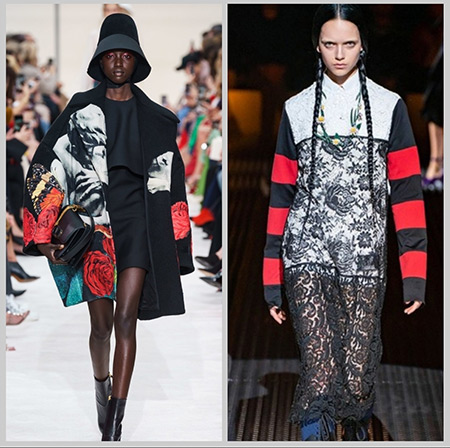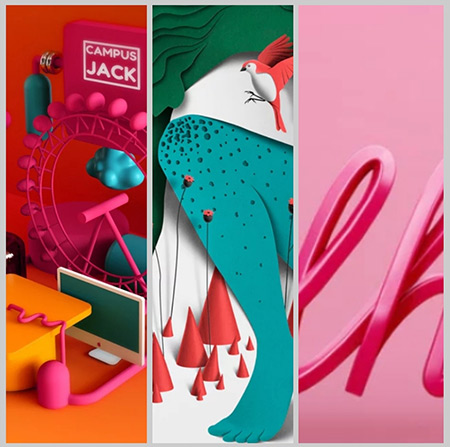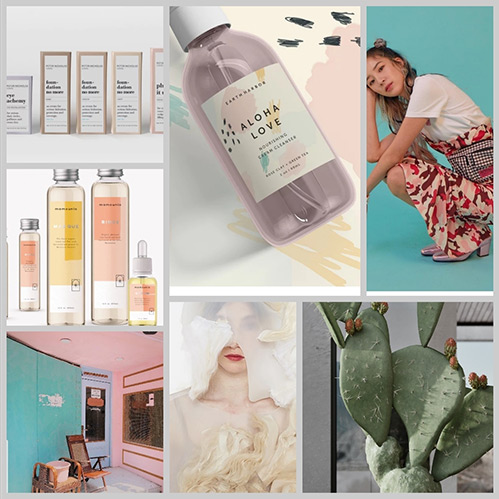How art practice and art appreciation could help us for self-development, transformation, creativity and right brain training in our daily life and work?
In this article we explore this topic:
- Focus
- Tolerate confusion
- Blind spot
- Contemporary language
One of the first things we learn in painting and in photography is the importance of the focus. If we do not decide which is the most important element of our composition and how to bring the eye of the viewer toward it, our painting will lose its strength. When everything is important, nothing is important. Seemingly in our life and work we tend to be overwhelmed by all the things we have to do, all the "priorities" become no priorities because we want to achieve them all.
My art teacher told me once: do not jump immediately to paint, take a bit of time first to think about your composition because if you do not have this right it will affect all your painting later and it will become messy. Stop also to connect with our self and to our source of inspiration.
Do we do this also in our life and work? Do we stop sometimes to reflect on our priorities, on what we wanna say YES and also to what we wanna say NO? And do we chose based on what we wanna be as a person and on our purpose (our sources of inspiration in life)?
In art before having a breakthrough, it is necessary to accept confusion and struggle. Art does not have shortcuts because it is not just a matter of technique, it is a matter of practicing and reflecting and exploring in order to find your own voice, style and maturity level. It is not only a matter of studying and trying hard. Confusion and searching in the dark is part of the process and it might be very difficult to bear, because nobody can predict when and if you will be able to reach this level.
So for long time you will ask yourself questions like: will I find my voice? will I be good enough to become a real artist? My experience is that the only way is to focus on the next step, learn to see what artistically does not work well and correct it, have someone to remind you about your blind spot and try to overcome it.
I do believe that it is the same process we experience when we are young and we still have to prove ourself in our profession. We do not know if we will be able to succeed but we continue our journey putting all the effort needed, trying our best and most importantly trying to be our true self. Also in life we might be tempted to copy others (do the work our family thinks is the best for us for example, even if we are not passionate about it) and follow a shortcut. Maybe we will be faster to achieve "success" in the eyes of others but this will not be Art only good technique. And only looking back, maybe when 40s or 50s we will know if we will "have made" it.
We all have a blind spot in Art which might block us from improvement. Mine is that being very experimental and creative I am always curious and like a child I wanna try new things, I am excited by the next possibility. In a way this is also a strength because let me challenge always the status quo but when it becomes too much I am not able to keep consistency, one single painting is a field for explorations which do not much together in an integrated artistic direction and the power of my paintings is diluted because of that. This blind spot or pitfall is the same I have in life because at the end of the story I am the same person in art and in life, with the same strengths and weaknesses. Also in life it is difficult for me to consolidate things because they soon become boring for me, so I have to keep an eye on my focus. In this sense art can help us to understand, in a safe environment what is THE THING we have to be aware of, and help us to apply it in all other contexts of our life.
Imagine painting like a form of visual language. Instead of words, painting uses colors, forms, strokes, composition, visual metaphors...“
CONTEMPORARY LANGUAGE



Imagine painting like a form of visual language. Instead of words, painting uses colors, forms, strokes, composition, visual metaphors. Both languages, words and painting, evolve. As today we would not be understood if using Latin instead of Italian, French or Spanish, seemingly the visual codes change overtime. Painting as Caravaggio or Picasso today would be not perceived as contemporary by the new generations, while computer drawing might be for example. Which are the elements of current and future visual grammar? How to be relevant or trend setter in this domain?
I am not saying that we MUST look outside to be a good painter however if we use an obsolete language our message could be diluted or not in tune with the evolution of the society.
This is the reason why I have started a research on the visual trends in different domains such as product development, architecture, fashion, graphic design, etc. to get inspiration for my art. Cross-field research is significantly impacting my creativity even if the path to find my own voice and language might be longer than just follow someone else path.
At work and in life it is the same. Also in these domains we need to challenge the status quo if we want to remain relevant. We need to see which are the new trends in our field of work to be able to satisfy our clients and communicate with the new generations. From my perspective, this is so fun! Because it keeps our mind and spirit fresh.

Facilitator of dialogue, innovation and transformation
Artist
Giorgia is Italian by origins and has been living in Asia since 2008 and previously in France and US. She has been trained by international professional artists. Her encounter with different cultures has led her to deepen an artistic research that goes to the essence of things, overcoming the equivocality of the first impression and the cultural trait. Her art brings you in a journey of discovery. You travel inside her paintings and see the mundane with the surprise of foreign eyes, observe aspects you normally would fail to see. She unveils for you the unconscious. She leads to observe deeper, either a city (by observing new and uncovered details in her urbanscapes) or a human being (by the strong emotions expressed with her nude female bodies). With a limited palette of colors and minimalist strokes and lines, she captures the essence of things and their vibe, making Chinese and Western aesthetic dialogue together.
Giorgia is also the founder of Marco-Polo-Consulting, a consultancy company based in HK and operating in World Wide with major focus on Asia Pacific. The company is focused on facilitating dialogue and innovation for people-centric organizational transformations.
Giorgia has a quite distinctive background combining business and people behaviors expertise with artistic creative practice:
• Entrepreneur and Facilitator of Organization Transformation and innovation. In the last 10 years, since she created her own company in China, Giorgia has been facilitating journeys of transformations for individual, team, organization and people management systems in many Asian countries. She helps people and organizations to become more innovative and to improve the employee experience at work. She uses collaborative approaches such as Design Thinking, Lego Serious play, Art of Hosting.
• Artist and “Art4transformation©” facilitator. Formally trained and professional painter and visual/graphic facilitator, amateur theater actor and puppetry maker. In her consulting practice Giorgia currently leverages both her artistic and business experience to help others becoming more creative in the business context and develop their leadership and right brain.
• EMBA adjunct professor. She has been adjunct professor of HR and Organizational Behaviors in China for Tongji/MIP EMBA in Shanghai - China
• Corporate Human Resource senior executive. She has been leading HR departments/teams in international companies in Europe, US and Asia for more than 15 years
More details about Giorgia’s profile at: https://www.linkedin.com/in/giorgia-madonno-313b677/ and about her artworks at www.gmadonno.com
About Marco Polo Consulting
Marco Polo Consulting is a facilitator of dialogue and transformation. We provide organizational development and transformation professional services World Wide, with major focus in the APAC Region. We strongly believe that meaningful, engaging, innovative working environment will result in happier people and better business results. We belong to a purposeful international ecosystem of boutique companies and professionals, able to offer the flexibility and care of relationships of a local boutique company together with the international capability of a global organization. Our clients in Asia include Volkswagen group, Fiat, Datalogic, Pirelli, Kaspersky Labs, De Longhi , Electrolux, Vopak, Luxottica and Ferrero.
More details at: www.marco-polo-consulting.com
